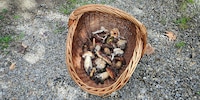
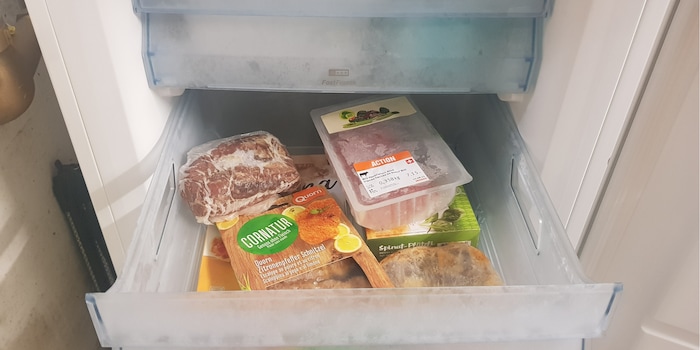
Find out how long your food will keep in the freezer
After years of avoiding it, I emptied our freezer again. In addition to plums from 2015, there were also two pieces of meat – at least I think it was meat – and various Tupperware containers of unknown content. «Can I still eat this?», I ask myself before turning to a food engineer for advice.
«Honey, do you think we can still eat the plums from my dad's garden that we froze seven years ago?» It’s a question I’m sure many have asked themselves while «decontaminating» the freezer. Quite the range of interesting finds emerged: A few plums from 2015 here, a loaf of bread left over from brunch two years ago there and a frozen duck breast that we didn’t prepare at Christmas 2019 after all.
What can I still eat now and what will still taste good? High time to let an expert answer my questions. Giovanna Spielmann is a food engineer for the Institute of Food Technology at the ZHAW School of Life Sciences and Facility Management in Wädenswil. She conducts research and teaches, primarily in the area of food microbiology.
Before going into detail, our expert states: «The issue of frozen food and its shelf life is likely to become more important in the near future, as people may buy more in bulk and freeze food due to the global political situation and related inflation.» Freezing food is also of great importance, she says, as it can ideally prevent food waste.
Together with researchers at ZHAW, Giovanna Spielmann has published a German language guide «on reducing food waste when checking expiry dates».
Food safety isn’t the same thing as edibility
The expert draws attention to an important distinction right at the beginning. Namely, to the difference between food safety and its edibility: «Basically, it can be said that once frozen, products can be eaten without any health risk even after years, as harmful microorganisms don’t multiply at sub-zero temperatures», Spielmann writes. On the other hand, the length of time spent in the freezer has an effect on the quality of frozen foods and their edibility. In other words, if you buy frozen fries at the supermarket that expire in April 2023, they’ll still be edible beyond that date, provided the chain of freezing is never interrupted – the only question is whether they’ll still taste good.
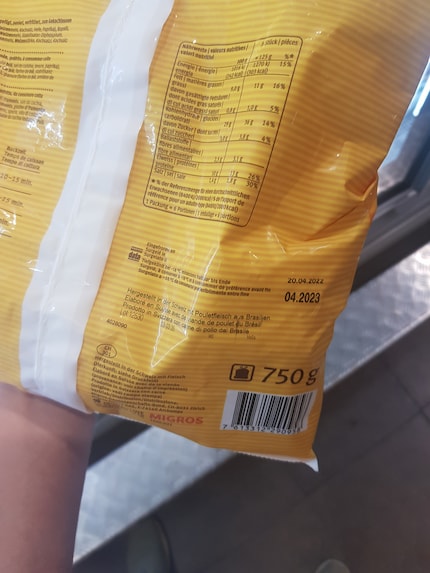
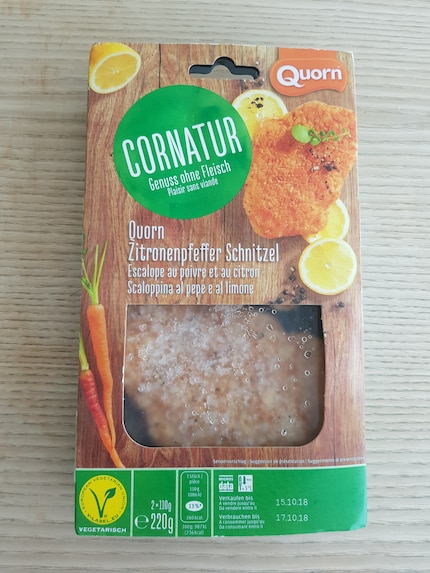
Regarding the chain of freezing: with a few exceptions, such as bread and butter, the rule is that once food has been thawed, it shouldn’t be refrozen. «And once thawed, food should be consumed quickly, within one to two days,» Spielmann stresses.
Rule of thumb: the fattier the food, the shorter its shelf life
Back to my plums that have been frozen for seven years now: are they still edible? And what about my 2018 duck breast?
1. Fruit and vegetables
The sooner frozen vegetables are frozen after harvest, the more vitamins are preserved. Most vegetables will keep for up to twelve months when frozen. To extend their shelf life, it’s recommended to blanch vegetables, dry them well and only then freeze them. This preserves vitamins and vibrant colours. When preparing these vegetables, they’re best placed in a cooking pot still frozen. This way, vitamins, minerals and their taste are preserved as well. Mushrooms and zucchini can also be frozen raw.
Another rule for fruit is that they can be frozen for a good year without any quality loss. For berries, it’s recommended to first pre-freeze them side by side on a tray or shallow dish for a few hours. This way they keep their shape and don’t stick together later. Back to my plums: you can tell if vegetables or fruit are spoiled by white or brownish discolouration.
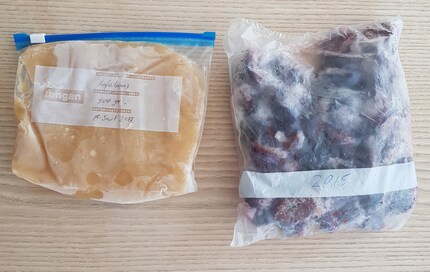
2. Meat and sausages
Generally, different meats keep in the freezer for different lengths of time. My rule of thumb: the fattier the meat, the less it keeps. For example, your chicken can be frozen for up to ten months, while minced meat or sausages shouldn’t be stored in the freezer for more than three months.
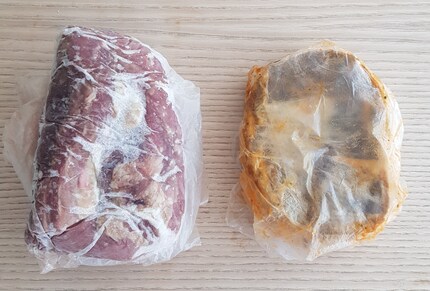
** 3. Fish**
Fish can be kept frozen for about four months. If it swims around your freezer for longer than that, it‘is still edible, but you may notice an unappetising fishy odour. Fish should also be fresh and gutted before freezing. Similar to meat, fish with a high fat content, such as salmon or trout, also have a shorter shelf life. Except, of course, for fish sticks, which are edible even after more than a year in a frozen state.
4. Dairy products
The shelf life of dairy products varies greatly. Depending on the variety, this type of food can be frozen for between two and twelve months. Ice cream, for example, keeps for up to a year. Butter can be kept frozen for six to eight months. If it’s frozen longer, you risk summoning a rancid odour. Milk, yogurt and cheese are only suitable for freezing to a limited extent, as sub-zero temperatures tend to kill cheese bacteria. Therefore, if a cheese hasn’t fully matured yet, you shouldn’t freeze it.
5. Bread and pasta
Bread shouldn’t be frozen for too long. It’s best packed whole or in sliced portions. Buns should only be frozen when very fresh and consumed after one to three months. Raw dough can be frozen for about four to six months.
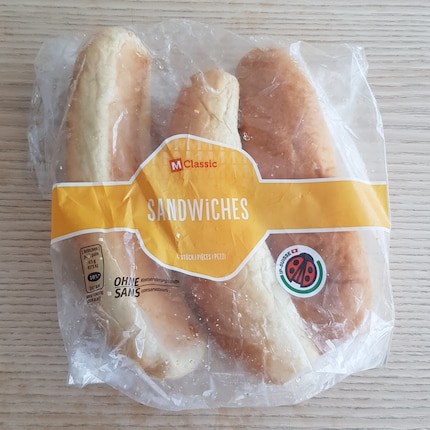
** 6. Cooked food**
Homemade foods, such as sauces, shouldn’t be frozen for more than three months.
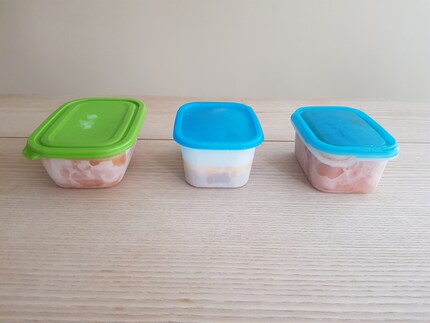
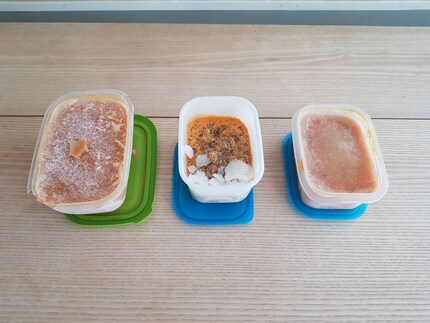
Watch out for freezer burn
While many foods are frozen to extend their shelf life, some foods are the opposite. They spoil faster and their consistency, appearance and taste deteriorate. These include, for example: raw eggs (burst), boiled eggs (become glassy), raw potatoes (become sweet), puddings and gelatine dishes (become watery), lettuce (collapses when frozen), mayonnaise (ingredients split) or generally water-rich foods such as radishes, cucumbers, raw tomatoes or watermelons, which become mushy and lose their typical consistency when thawed. And dairy products such as yogurt, soured milk or creme fraiche become flaky.
No matter what food you want to freeze, you should make sure to pack it properly. If air gets to food that’s in the process of freezing, freezer burn can appear. This manifests as ice crystals and dried-out whitish to brownish-grey areas on food, which impair the taste and cause food to become tough and leathery.

So, when freezing, remove any air from freezer bags and ensure an airtight seal with special clamps. This is particularly easy with a vacuum sealer and suitable bags.
The Food Manager app creates an overview of your frozen foods
I’m pretty sure I wouldn’t have had so many surprises when emptying my freezer if I had enlisted the services of an app such as «Food Manager». With this app, you can manage all the contents of your refrigerators and freezers. If you wish, «Food Manager» will remind you to eat respective food even before the expiry date. Vacuum films sporting QR labels make the app even more convenient to use. Simply vacuum seal your food, apply labels and import them directly into Food Manager.
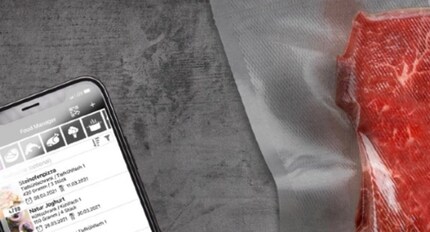
This was all theoretical, of course. I guess the only way I’ll find out if I can still eat my plums now after more than seven years is to just taste them. Just as food engineer Giovanna Spielmann will do herself with her fondue mixture, which has been stored in the freezer for almost a year. «I like to experiment with frozen foods myself and am always curious to see if and how freezing affects individual foods.»
Half-Danish dad of two and third child of the family, mushroom picker, angler, dedicated public viewer and world champion of putting my foot in it.
Interesting facts about products, behind-the-scenes looks at manufacturers and deep-dives on interesting people.
Show all

